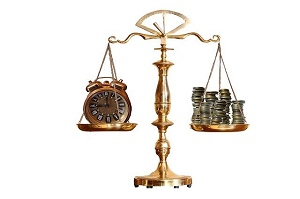
One of the primary things that we suggest to clients is to track expenses. In some cases, this means noting down each expense as you make it, daily, so that even the incidental cash outlays are tracked.
Another way to do this is to use an automated method, one of the many apps available, to monitor your expenses through your credit card and bank accounts.
Either way, when you track expenses there are a couple of outcomes that can have a positive influence on your financial life.
The first is that you become more aware of each outlay of money, whether in cash or from a credit card. Since you track expenses they don’t just pass by, they have a record that you can see and refer to. That coffee you bought on a whim has a life now, and you can see the impact that the purchase had on your life.
The second positive outcome is that once you track expenses and summarize them, you begin to see a picture of your priorities. Whatever you’re spending money on is a priority, and the more you spend, the higher the priority.
These are also reasons why the concept of bullet-journaling is so popular and effective. If you track your every activity on a day-to-day basis, you have a record of all the things you spend your time on. And, as when you track expenses, you can review the history of your time spent – showing your priorities in terms of time. Whatever you spend your time on is a priority, and the more time you spend, the higher the priority.
Knowing where your priorities are historically gives you a chance to address these priorities for the future.
And since you’re taking note of your spending (in time or money) regularly, you can make decisions about how that spending is done. In some cases the decision can be made in the moment – deciding not to spend your precious time or money on that particular item – or making long-term decisions about spending time or money.
For example, you might make the conscious choice to no longer spend time with repetitive tasks by automating or outsourcing. And when you track expenses, you might make decisions about trimming back or eliminating frivolous incidentals, like lottery tickets.
The point is, whether you track expenses or track your time, summarizing this historical record gives you the opportunity to make decisions about how you spend those precious resources in the future. You can control your priorities only if you pay attention to what they actually are.



 Sterling Raskie, MSFS, CFP®, ChFC®
Sterling Raskie, MSFS, CFP®, ChFC® The latest in our Owner’s Manual series, A 401(k) Owner’s Manual, was published in January 2020 and is available on
The latest in our Owner’s Manual series, A 401(k) Owner’s Manual, was published in January 2020 and is available on  A Medicare Owner’s Manual, is updated with 2020 facts and figures. This manual is available on
A Medicare Owner’s Manual, is updated with 2020 facts and figures. This manual is available on  Social Security for the Suddenly Single can be found on Amazon at
Social Security for the Suddenly Single can be found on Amazon at  Sterling’s first book, Lose Weight Save Money, can be
Sterling’s first book, Lose Weight Save Money, can be  An IRA Owner’s Manual, 2nd Edition is available for purchase on Amazon. Click the link to choose the
An IRA Owner’s Manual, 2nd Edition is available for purchase on Amazon. Click the link to choose the  Jim’s book – A Social Security Owner’s Manual, is now available on Amazon. Click this link for the
Jim’s book – A Social Security Owner’s Manual, is now available on Amazon. Click this link for the  And if you’ve come here to learn about queuing waterfowl, I apologize for the confusion. You may want to discuss your question with Lester, my loyal watchduck and self-proclaimed “advisor’s advisor”.
And if you’ve come here to learn about queuing waterfowl, I apologize for the confusion. You may want to discuss your question with Lester, my loyal watchduck and self-proclaimed “advisor’s advisor”.